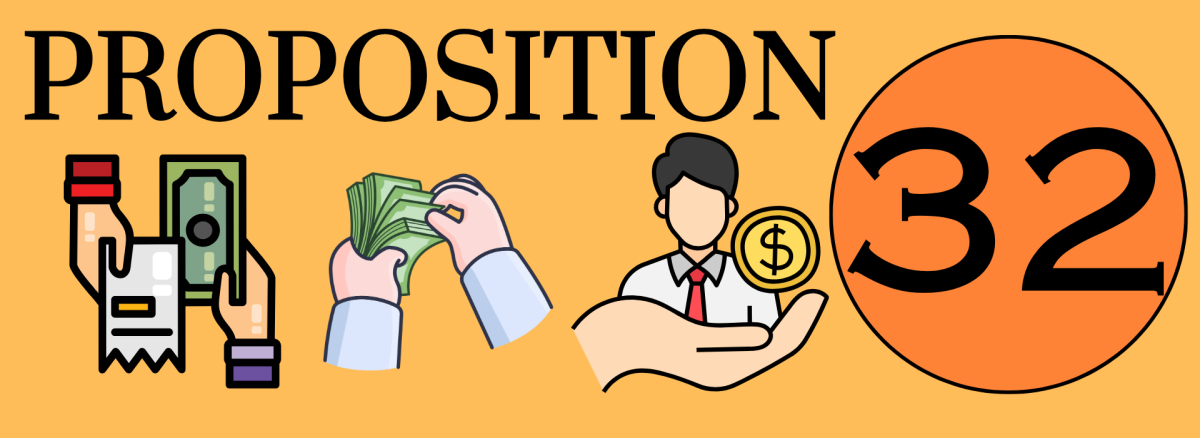Proposition 32 on California’s Nov. 5 general election ballot provides voters with the choice to raise the statewide minimum wage to $18 from $16.
Companies with 26 or more employees would be required to pay workers $17 an hour immediately and $18 on Jan. 1, 2025. Businesses with 25 or less employees would pay workers $17 starting Jan. 1, 2025, and $18 in Jan. 2026. After 2026, the minimum wage would increase annually based on inflation.
If Proposition 32 is rejected, the minimum wage would stay at $16 for the remainder of 2024 and increase to $16.50 in 2025. Wages would continue to rise annually based on the guidance of the state’s director of finance.
Supporters of Prop 32 include the California Democratic Party, California Labor Federation, and League of Women Voters.
“A minimum wage of $18 an hour will reduce income inequality and improve the standard of living for millions of California workers,” according to the League of Women Voters’ press kit. “An $18 minimum wage is likely to increase wages across the board which will increase consumer spending that will help the economy. Increased spending creates more jobs, making everyone better off.”
Opponents of Proposition 32 include the California Chamber of Commerce, the California Restaurant Association, and the California Grocers Association.
“The passage of Proposition 32 will leave fewer resources available to fund important programs, including those that enhance public safety and education, and work to combat California’s homelessness crisis,” said a CCC press release. “Proposition 32 hurts workers because it will result in a reduction of jobs and reduced working hours for California employees, disproportionately impacting those with limited training or who are new to the workforce.”
According to the California Department of Finance, California residents haven’t voted on a proposition to raise the minimum wage since 1996 when the wage was raised to $5.75.
In April 2016, the California Legislature passed a bill that raised the minimum wage to $9 in 2017 and implemented a policy to raise the wage each year until it reached $15 in 2023.
The bill stated that once the minimum wage reached $15, the state department of finance would decide if the wage should be increased in the following year. In August 2024, California Director of Finance Joe Stephenshaw announced an increase to $16.50 in January 2025.
The local impact of Proposition 32 is unclear. Santa Rosa and Petaluma have minimum wages of $17.45, while the city of Sonoma has a minimum wage of $17.60. These wages adjust annually based on inflation. Sonoma County businesses outside these three municipalities abide by the state minimum wage.
Petaluma announced in September that its minimum wage will increase to $17.97 in 2025. Santa Rosa and the city of Sonoma have not yet announced a minimum wage increase for 2025.
A yes vote on Proposition 32 supports raising the minimum wage to $18 in 2025 for large businesses and 2026 for small businesses tying future change of wages to inflation.
A no vote on Proposition 32 opposes raising the minimum wage in 2025 and supports keeping future change of wages in the hands of the California director of finance.





